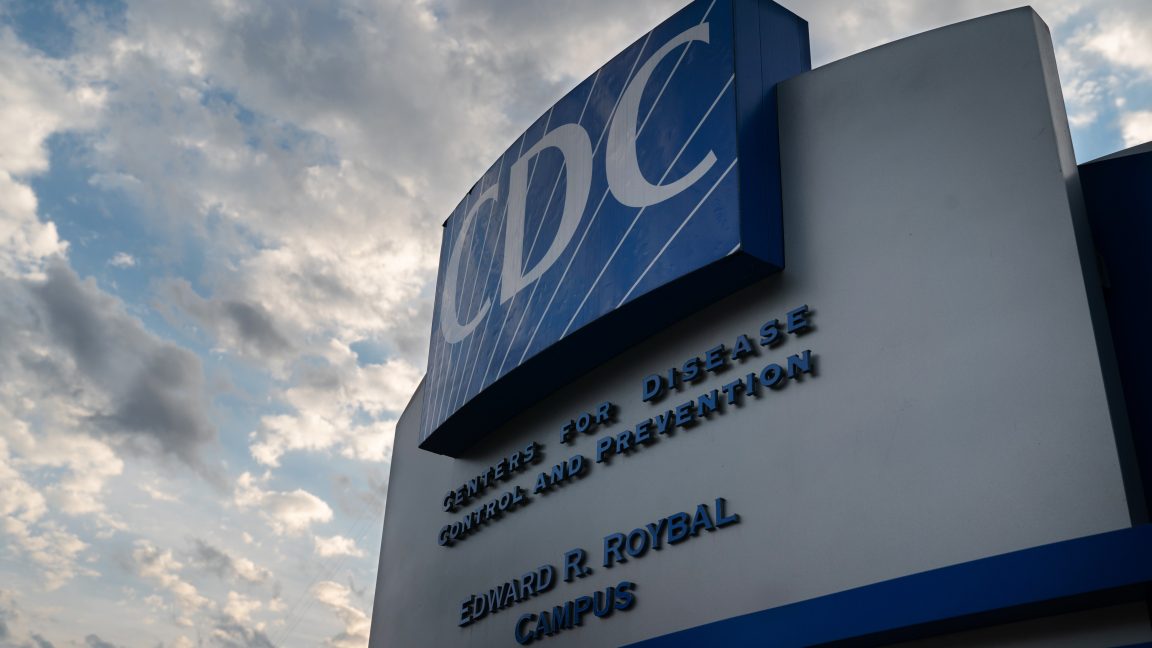Science
Trump Administration’s Actions Impact CDC Health Journal Output

The flagship health journal of the Centers for Disease Control and Prevention (CDC) has experienced a significant decline in output, attributed in part to actions by the Trump administration. A report from MedPage Today highlights that the Morbidity and Mortality Weekly Report (MMWR) has faced restrictions that may hinder its critical role in public health communication.
According to sources cited by MedPage Today, the journal now requires clearance from Robert F. Kennedy Jr., the Secretary of Health and an outspoken anti-vaccine advocate, prior to publishing scientific articles. Critics point out that Kennedy lacks formal training in health, science, or medicine, raising concerns about potential biases in the journal’s content. A spokesperson for the Department of Health and Human Services has denied these claims, labeling them as “false.”
Despite the official rebuttal, the evidence suggests that MMWR has become quieter since the new administration took office. The publication of studies has slowed dramatically, and the usual embargo system that allows the media early access to findings is no longer in place. Notably, in January 2025, for the first time in its over 60-year history, the MMWR did not meet its publication schedule due to a federal communication freeze.
A review of publication statistics reveals a stark contrast. In the three-month period from May to July 2025, only 35 studies were published, compared to an average of 76 from previous years, which ranged from 55 to 89. This analysis, conducted by MedPage, excluded the peak years of the COVID-19 pandemic when public health communications surged.
The decline in MMWR’s output is compounded by budget cuts affecting the CDC. Sources, including a former director at the CDC, suggest that reduced funding and staffing have impeded the journal’s ability to operate effectively. Approximately 75 percent of MMWR content originates from CDC scientists, while the remainder is contributed by external researchers and public health officials, many of whom have also faced funding reductions during the second Trump administration.
The chilling effect on submissions from outside scientists is concerning. Many researchers may be apprehensive about potential political interference under Kennedy’s leadership. James Lawler, a director at the University of Nebraska Medical Center’s Global Center for Health Security, expressed that the situation is detrimental to public health. He stated, “MMWR is not an academic journal to share knowledge among scientists. It’s a practical publication to tell health care professionals what’s going on with the health of the population.”
MMWR plays a vital role in disseminating essential epidemiological information on various public health issues, including foodborne illnesses, vector-borne diseases, and emerging infectious diseases. Lawler emphasized that the decline in MMWR’s output compromises safety, stating, “The decline of MMWR makes us less safe because our hospitals and health care facilities and public health professionals are going to be less informed.”
As the situation develops, the implications for public health communications remain significant. The ongoing challenges faced by the MMWR highlight the need for robust and unbiased public health reporting to ensure informed decision-making in health care and policy.
-

 Politics4 weeks ago
Politics4 weeks agoSecwepemc First Nation Seeks Aboriginal Title Over Kamloops Area
-

 World5 months ago
World5 months agoScientists Unearth Ancient Antarctic Ice to Unlock Climate Secrets
-

 Entertainment5 months ago
Entertainment5 months agoTrump and McCormick to Announce $70 Billion Energy Investments
-

 Science5 months ago
Science5 months agoFour Astronauts Return to Earth After International Space Station Mission
-

 Lifestyle5 months ago
Lifestyle5 months agoTransLink Launches Food Truck Program to Boost Revenue in Vancouver
-

 Technology3 months ago
Technology3 months agoApple Notes Enhances Functionality with Markdown Support in macOS 26
-

 Lifestyle3 months ago
Lifestyle3 months agoManitoba’s Burger Champion Shines Again Amid Dining Innovations
-

 Top Stories2 months ago
Top Stories2 months agoUrgent Update: Fatal Crash on Highway 99 Claims Life of Pitt Meadows Man
-

 Politics4 months ago
Politics4 months agoUkrainian Tennis Star Elina Svitolina Faces Death Threats Online
-

 Sports5 months ago
Sports5 months agoSearch Underway for Missing Hunter Amid Hokkaido Bear Emergency
-

 Politics5 months ago
Politics5 months agoCarney Engages First Nations Leaders at Development Law Summit
-

 Technology5 months ago
Technology5 months agoFrosthaven Launches Early Access on July 31, 2025





















